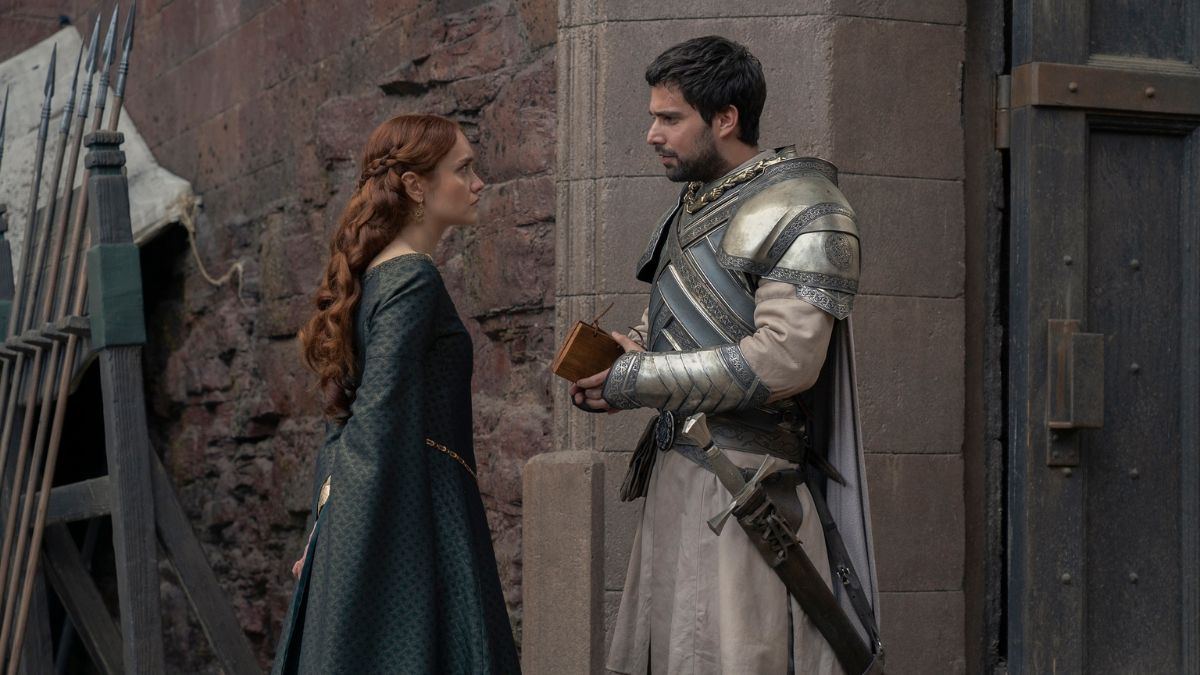Alicent’s Poetic Justice Is Also So Tragic
The status quo will never favor women!

If George R.R. Martin’s World of Ice and Fire had to be distilled into just a few short words, then it would probably be “What goes around comes around.”
In House of the Dragon, after Alicent made sure Rhaenyra’s claim to the Iron Throne was rejected by the patriarchal King’s Council, she was seen getting impaled by her own sword in season 2 episode 5, “Regent.”
Spoilers ahead!
What happened with Alicent in House of the Dragon season 2 episode 5?
King Aegon II, partially crispy fried by his brother Aemond’s dragon Vhagar, is in no condition to rule, and his Small Council is tasked with the duty to appoint a regent to rule in his stead. Naturally, Alicent thinks this is not some tough call, since she has ably acted as regent in the past, when her husband, King Viserys I, was incapacitated due to his ill health. So it should be her again, right? RIGHT?
Well, no. The Small Council is quite literally a sample size of the patriarchal mindset of the world they live in, and as has been a pattern, they are willing to let a woman rule as long as they have no other male option to replace her, or they can pull her strings. The latter is no longer possible with Alicent, because they are aware that she doesn’t have the stomach for war and still harbors love and compassion for Rhaenyra.
But more importantly, they have a male heir, ripe and ready, and extremely suited to their war agenda, right there at the table—Prince Aemond Targaryen. So why on Earth would they let the Dowager Queen order them around?
Fans think what happened to Alicent was poetic justice
For many fans, watching Alicent in that scene—realization dawning on her about her loss of control as the men around her continued to make strategies—felt like poetic justice, with Alicent finally realizing how Rhaenyra must’ve felt when she was sidestepped for the crown because a male heir, Aegon, was available to sit on the throne. Men will never let a woman sit on the Iron Throne, no matter how much she’s in with them.
But really, it’s just sad, because she could’ve mitigated some of the war and bloodshed
Some called Alicent’s situation a comeuppance for being the “pick me” girl, but it would be wrong to call her that. Alicent is a product of her circumstances, which included years of emotional and sexual abuse at the hands of the men in her life. She learned to love and support these men out of her twisted sense of duty, but it was merely her survival, and not her becoming a “pick me” girl.
Yet this scene does have a great significance because she realizes that the war she and Rhaenyra thought they could somehow manouver, has gone way beyond their control, into the hands of men like Aemond who want to extract a bloody, destructive vengeance from everything that hurt them.
In the very next scene, when Alicent confronts Ser Criston Cole, who also voted against her becoming regent, he tells her that they’ve given over the war to the dragons, and the most powerful dragon rider must now lead them. This is even more terrifying, because not only is the war now in the hands of men like Aemond, but at the mercy of dragons like Vhagar, who are beyond anyone’s control, and no matter who wins, it will all end in fire and blood.
It’s sad when you think about how much of this could’ve been avoided had they simply let a woman—Rhaenys, Rhaenyra, or even Alicent as regent—take the Iron Throne!
Have a tip we should know? tips@themarysue.com